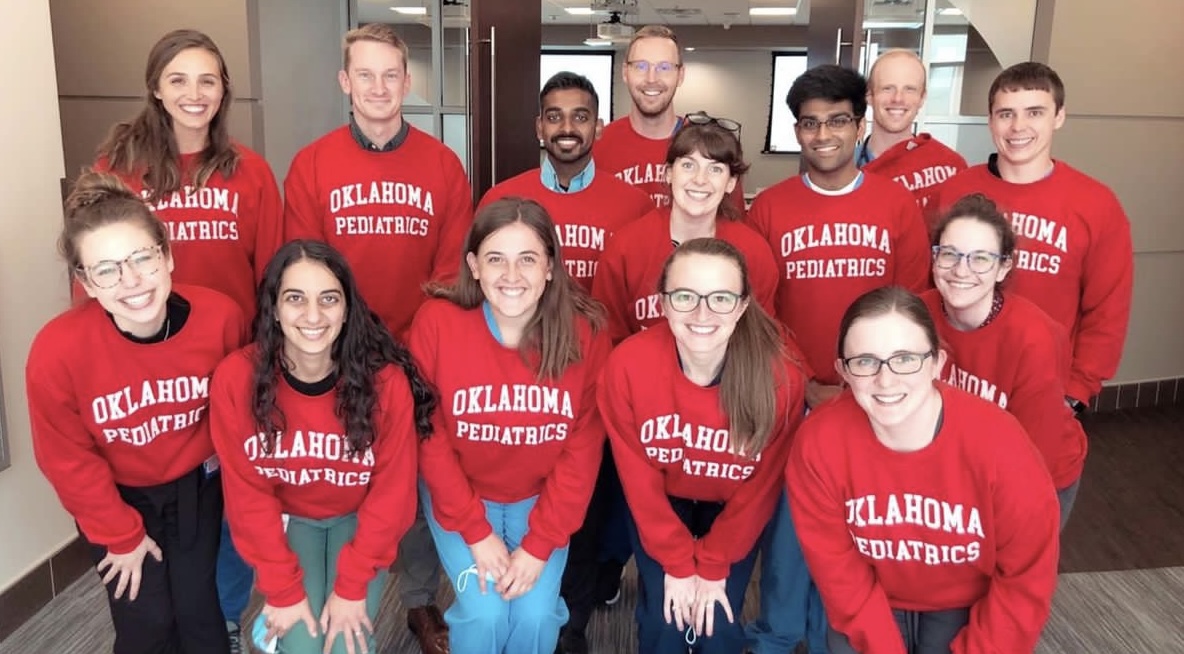
Didactics
Noon Conferences: Every week, faculty lead interactive conferences that follow an outlined board-preparation curriculum. The interactive format encourages resident engagement and enhances retention of the material covered.
Noon Report: This monthly "solve the diagnosis" conference is a case-based presentation given by a PGY-2 resident and moderated by faculty, with the goal of enhancing critical thinking as well as differential diagnoses amongst residents and medical students. Lunch is provided!
Grand Rounds: A variety of local and national speakers present a full scope of timely, evidence-based pediatric healthcare topics to pediatric residents, students, staff, and community providers.
Morbidity and Mortality Conference: Noon conference for residents and faculty to discuss difficult cases in order to review systems-based improvements to enhance patient care.
Social Determinants of Health Curriculum: A longitudinal, multi-disciplinary curriculum embedded in the Y week. 4 cohorts enjoy trainings both within the university and community settings, learning the principles of social justice and equitable care for children and their families.Click here for a list of sites where our residents are serving and how they will be serving.
Resident Research Curriculum: This curriculum includes a series of small group Y week sessions which focus on Evidence-Based Medicine and essential research project development topics. Additionally, residents are required to complete a longitudinal research project (hypothesis-based research, QI, or advocacy) and to present at a local, regional, or national meeting. For more information on department research support for trainees, go here.
Quality Improvement: All residents participate in small group workshop-style sessions during their Y week. Through these sessions, they learn the basics of quality improvement methodology and immediately apply the information to develop and execute a QI project. Skilled faculty facilitators work with each cohort to help them successfully complete and present their projects as a cohort at the end of the academic year.
Well-Being: Unwell faculty and unwell residents can't take excellent care of themselves, their colleagues, or their patients. We build well-being into our culture, first and foremost. If that's not in place, it doesn't matter how many well-being sessions you offer - humans simply do not thrive in a toxic environment. Well-being means holistic wellness - that's why we offer a variety of trainings, sessions, and opportunities (both formal and informal) for our residents to address their well-being sphere in need. Examples include social events, financial seminars, meditation and mindfulness trainings, free counseling and advocacy drives, and free lunch time on Friday's throughout the year to socialize among others.
Professional Development Lectures: These interactive conferences for residents, fellows and faculty emphasize the essential principles of professionalism, communication, diversity, and ethics as well as address the real-life challenges of medical practice. Providing a safe, interactive forum for shared experiences, generational perspectives, and common goals help us guide one another in our roles as practitioners, colleagues, and educators.
Pediatric Skills and Simulation Curriculum: The Skills and SIM curriculum focuses on teaching clinical, procedural and resuscitation skills. Sessions take place in the Y week in the Clinical Skills Testing and Education Center. Residents participate in stations dedicated to hands-on learning and high-fidelity simulation.
Financial Freedom: This is a quarterly lecture series led by one of our faculty that helps guide our residents through the challenges of spending, saving and investing. This past year the program had a “Roth On” competition among the residents which encouraged residents to open investment accounts early as we were learning the importance of compounding interest.